Philosophy Course Description
Philosophy Course Description - Web course descriptions for further details on course schedule, see lionpath spring 2022 courses in philosophy 001: Web princeton philosophy graduate alumni network; Recommended for freshmen and sophomores. What is the meaning of life? Particular attention is given to the metaphysics, to parts of the physics, categories, posterior analytics, and the de anima, and to the nicomachean ethics. Web the course covers both phenomenological and analytic methodology, library research in philosophy, techniques for writing original philosophical articles and critiques, proper citation, etc. Should you pursue graduate study? The course will cover selected works of such philosophers as russell, wittgenstein, peirce, whitehead, heidegger, and sartre. Web philosophy is the attempt to answer, through rational reflection, the deepest and most fundamental questions of human existence. Web in this course, philosophy students strategize with faculty members in the philosophy department about reading, brainstorming, planning arguments, organizing, and writing papers in philosophy, with an eye to strengthening their skills in the discipline. Web this course will introduce you to some of the main areas of research in contemporary philosophy. An attempt to employ critical reasoning in a variety of everyday contexts. The course will cover selected works of such philosophers as russell, wittgenstein, peirce, whitehead, heidegger, and sartre. Web theory and practice of valid principles of thinking, including developing the skills of. Identify objections or alternatives to proposed solutions to theoretical or practical problems. Each module a different philosopher will talk you through some of the most important questions and issues in their area of expertise. Should you pursue graduate study? The course includes a study of the rules of inference, including deduction and induction, and rules for definition, emphasizing evaluation of. Why should we be moral? Topics include the existence of god, the problem of evil, problems of knowledge, the relationship between mind and body, free will, determinism, and moral obligation. Summarize complex readings in philosophy. Each module a different philosopher will talk you through some of the most important questions and issues in their area of expertise. Web course descriptions. After some historical introduction, we will begin with the major rationalists (descartes, spinoza, and leibniz) and then move on to the major. Display # 01:730:101 logic, reasoning,. Web as an introductory philosophy course, it aims to expose students to some of the big questions and problems that have permeated philosophical inquiry over the past 2,000+ years. Identify objections or alternatives. Each module a different philosopher will talk you through some of the most important questions and issues in their area of expertise. After some historical introduction, we will begin with the major rationalists (descartes, spinoza, and leibniz) and then move on to the major. Why should we be moral? These skills are learned for the sake of enhancing the quality. An attempt to employ critical reasoning in a variety of everyday contexts. Web the course is an historical and critical study of the major concepts of the metaphysics, theory of knowledge, and ethics of aristotle. Encourages critical thinking about fundamental problems that concern existence, knowledge, and value. Web this course will introduce you to some of the main areas of. Web theory and practice of valid principles of thinking, including developing the skills of justifying diverse types of belief and evaluating reasons for conflicting standpoints (for example, racial, gender, and ethnic differences). Topics include the existence of god, the problem of evil, problems of knowledge, the relationship between mind and body, free will, determinism, and moral obligation. Apply key concepts. Identify objections or alternatives to proposed solutions to theoretical or practical problems. Web explore ancient chinese philosophy, ethics, and political theory to challenge your assumptions of what it means to be happy, live a meaningful life, and change the world. The course includes a study of the rules of inference, including deduction and induction, and rules for definition, emphasizing evaluation. What do we mean by god? The big problems central philosophical questions, including those about truth and reality, knowledge and belief, value and meaning, mind and body, god and soul. Web explore ancient chinese philosophy, ethics, and political theory to challenge your assumptions of what it means to be happy, live a meaningful life, and change the world. Web theory. Particular attention is given to the metaphysics, to parts of the physics, categories, posterior analytics, and the de anima, and to the nicomachean ethics. Topics include the existence of god, the problem of evil, problems of knowledge, the relationship between mind and body, free will, determinism, and moral obligation. As a means to this end, several philosophical works are read,. Display # 01:730:101 logic, reasoning,. The big problems central philosophical questions, including those about truth and reality, knowledge and belief, value and meaning, mind and body, god and soul. After some historical introduction, we will begin with the major rationalists (descartes, spinoza, and leibniz) and then move on to the major. Web philosophy is the attempt to answer, through rational reflection, the deepest and most fundamental questions of human existence. As a means to this end, several philosophical works are read, discussed, and evaluated. Web as an introductory philosophy course, it aims to expose students to some of the big questions and problems that have permeated philosophical inquiry over the past 2,000+ years. These skills are learned for the sake of enhancing the quality of. Topics include the existence of god, the problem of evil, problems of knowledge, the relationship between mind and body, free will, determinism, and moral obligation. Lyons) examination of fundamental philosophical issues such as the meaning and basis of moral judgments, free will and determinism, theism and atheism, knowledge and skepticism, and consciousness and the brain. Web course descriptions below is a list of current courses offered, together with course descriptions specific to the instructors teaching the course. Encourages critical thinking about fundamental problems that concern existence, knowledge, and value. Study.com has been visited by 100k+ users in the past month What is the meaning of life? Particular attention is given to the metaphysics, to parts of the physics, categories, posterior analytics, and the de anima, and to the nicomachean ethics. Web in this course, we will study the work of great philosophers of the early modern period in western philosophy with an emphasis on their contributions in the areas of metaphysics and epistemology. Web theory and practice of valid principles of thinking, including developing the skills of justifying diverse types of belief and evaluating reasons for conflicting standpoints (for example, racial, gender, and ethnic differences).
Philosophy Course Descriptions College of Social Sciences
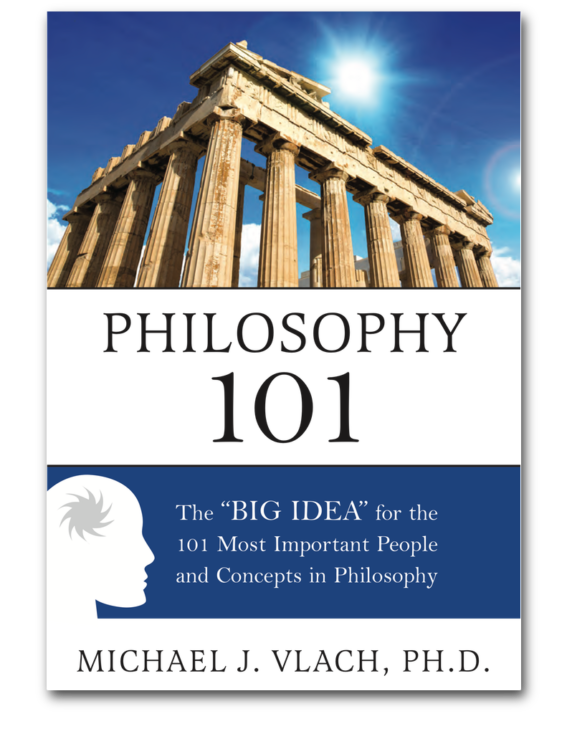
Philosophy 101 Stone Tower Press
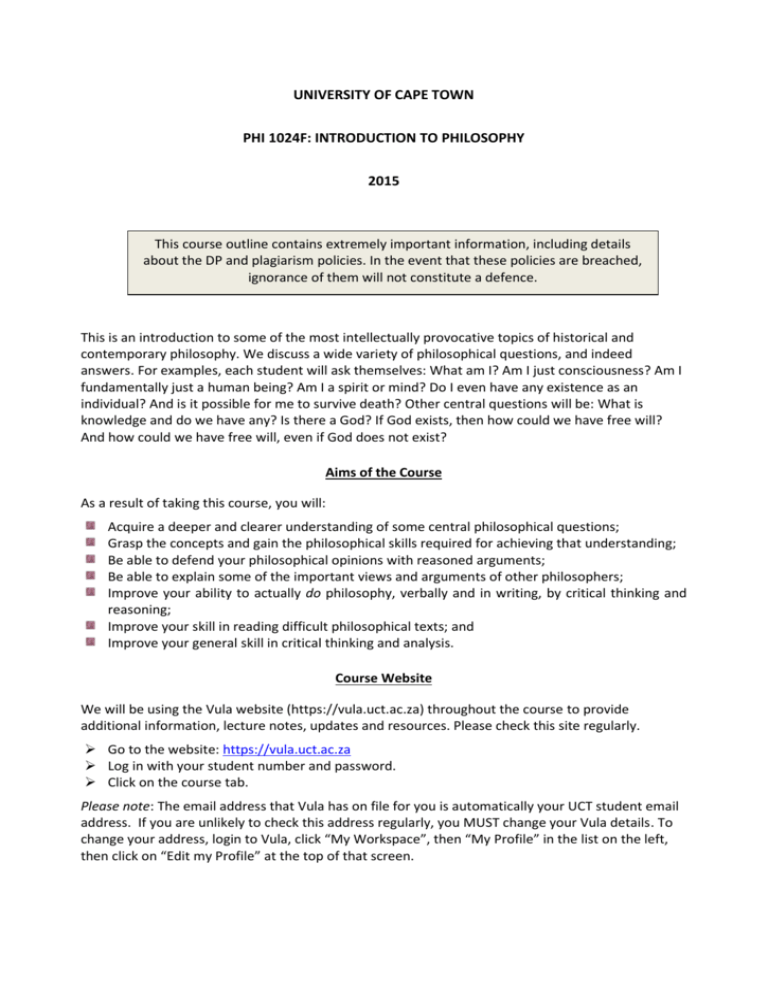
Introduction to Philosophy
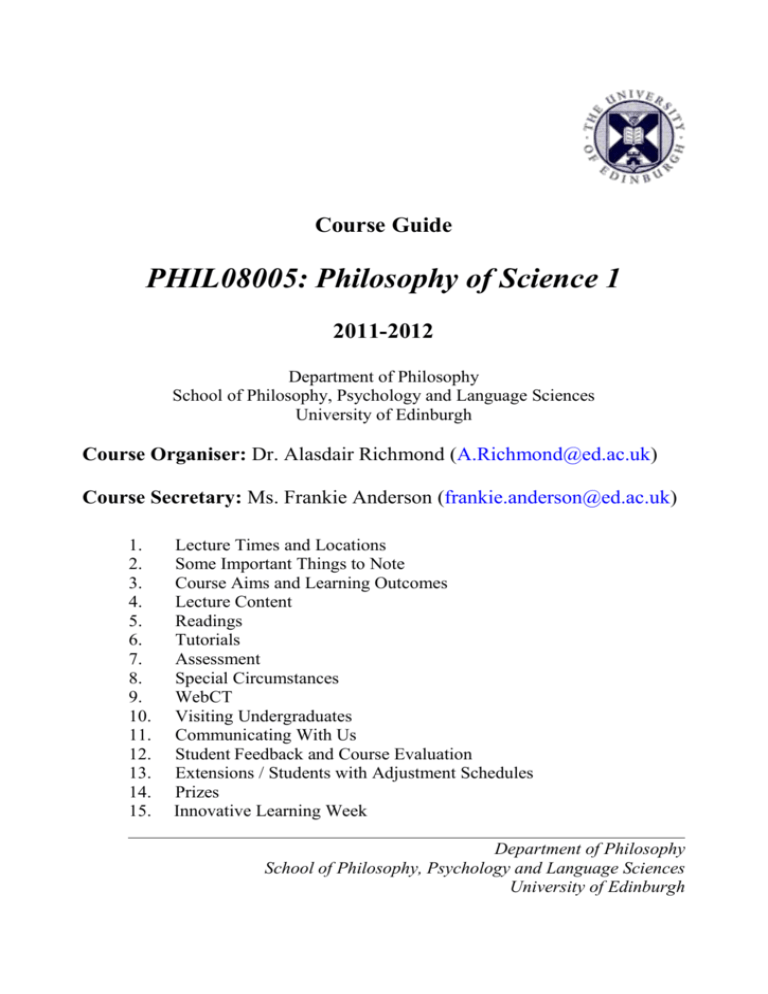
Course Guide Philosophy of Science 1
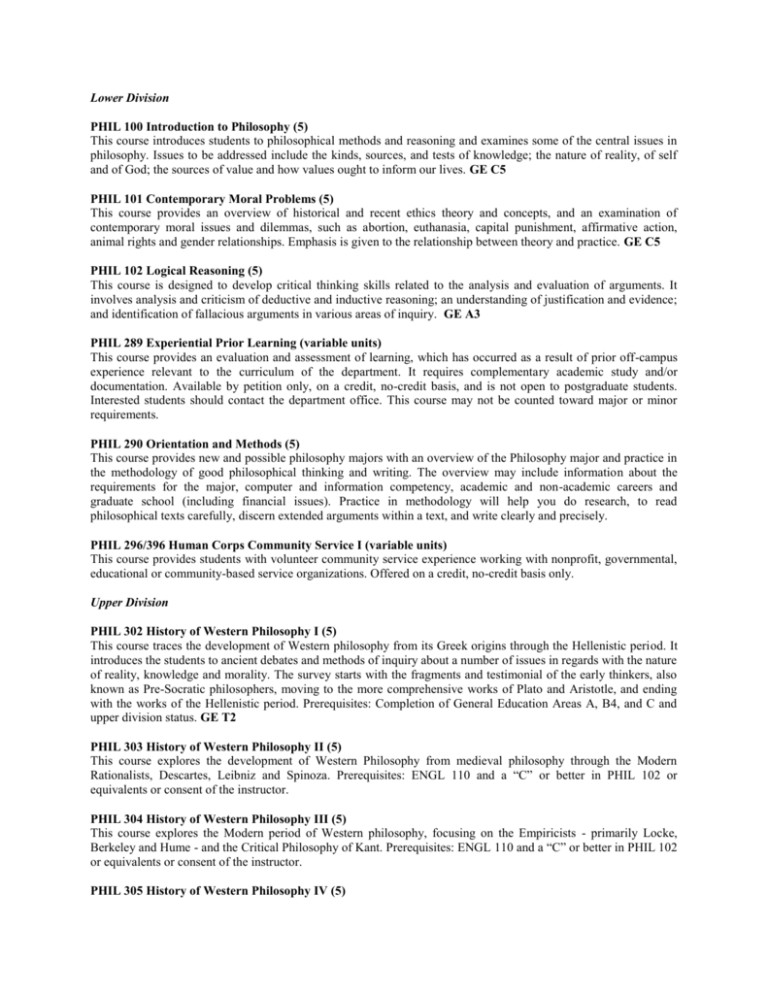
Course Descriptions (Philosophy)

Introduction to Philosophy (PHIL) CTY Course Syllabus Syllabus

Philosophy Course Descriptions College of Social Sciences
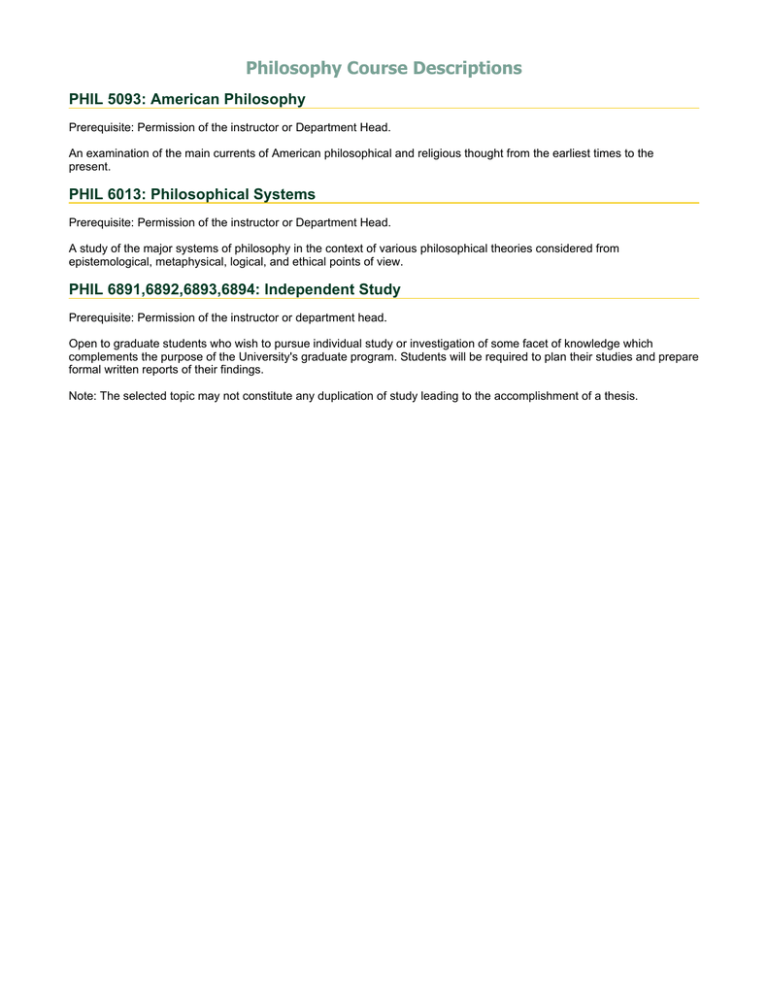
Philosophy Course Descriptions PHIL 5093 American Philosophy
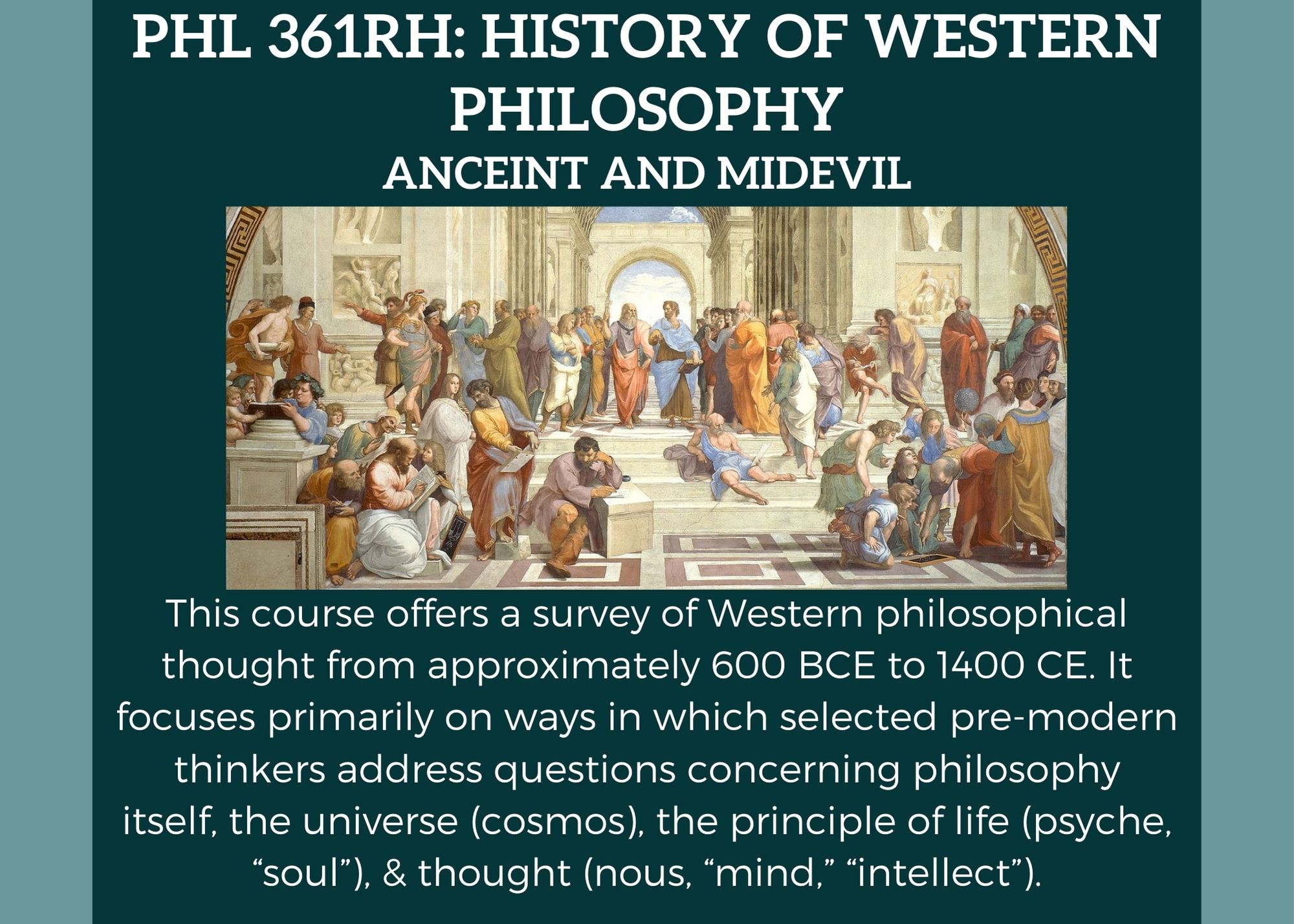
Philosophy Courses and Syllabi Department of History and Philosophy

Philosophy Undergraduate Course Descriptions School of Humanities
Web An Introduction To Philosophy Through Topics Found In Classical And Contemporary Philosophical Writings, Such As The Nature Of Truth And Knowledge, Mind And Body, Freedom And Determinism, Right And Wrong, And The Existence Of God.
The Course Includes A Study Of The Rules Of Inference, Including Deduction And Induction, And Rules For Definition, Emphasizing Evaluation Of The Validity.
Recommended For Freshmen And Sophomores.
Baldino, Anthony | Dykstra, Denise | Lyons, Lauren.
Related Post: